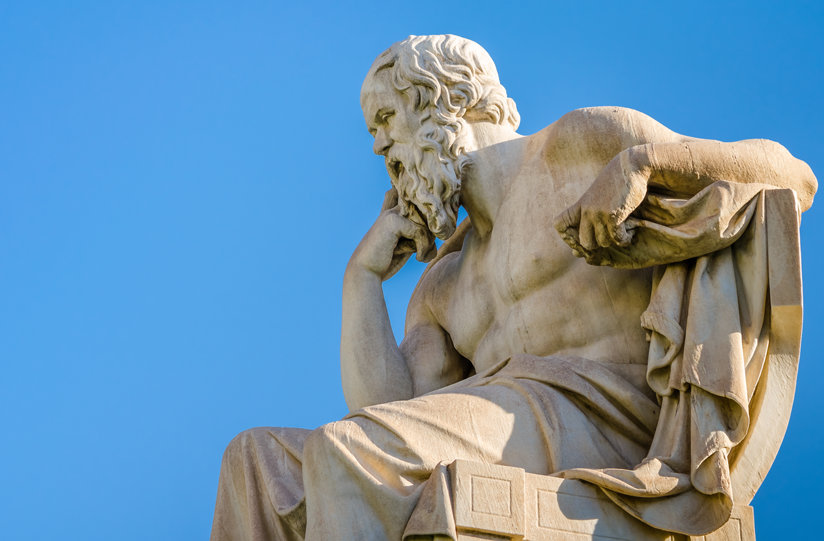
-
HOME
-
WHAT IS STANDOur Mission Our Values Our Help Contact
-
WHAT WE FIGHT FORReligious Freedom Religious Literacy Equality & Human Rights Inclusion & Respect Free Speech Responsible Journalism Corporate Accountability
-
RESOURCESExpert Studies Landmark Decisions White Papers FAQs David Miscavige Religious Freedom Resource Center Freedom of Religion & Human Rights Topic Index Priest-Penitent Privilege Islamophobia
-
HATE MONITORBiased Media Propagandists Hatemongers False Experts Hate Monitor Blog
-
NEWSROOMNews Media Watch Videos Blog
-
TAKE ACTIONCombat Hate & Discrimination Champion Freedom of Religion Demand Accountability
The Divide Between Bigotry & Reason
Anything which not only teaches people to question existing authorities but how to do it and teaches them how to think for themselves will be characterized as “dangerous” by people who don’t like being questioned.
It’s pretty simple really, and it’s been a historical fact.
The Greek philosopher Socrates was killed by the authorities when he did too much questioning. His pupil, Aristotle, had to flee from them. Anyone questioning Rome, then later the medieval church, was tortured, fed to the lions, burned at the stake or met with some other equally brutal fate. Anyone questioning leaders of totalitarian states today suffers similarly.

Times may change, but mean, nasty people will always find a way to be mean and nasty, and nobody gets as bigoted and violent, or howls with indignation and levels threats and accusations quite like a crook, a liar, a fake or an incompetent when he or she is questioned. When threats don’t work, they’ll resort to undermining, using a range of vague terms like “witch,” “cult,” “brainwashing,” etc. to frighten people away and try to convince them there is some mysterious, unknowable force that will come out and “get you” if you go near it.
This is a symptom of the two types of thought between which a very bloody battle has waged throughout the history of mankind. The dominant one, Arbitrary Thought, is based upon authority and popularity: a teacher, parent, politician, media, celebrity or “everybody” says “XYZ” and people believe “XYZ” therefore must be true. This is the type of follow-the-herd thought which we all start out with as children and many of us never learn to escape.
Anything which not only teaches people to question existing authorities but how to do it and teaches them how to think for themselves will be characterized as “dangerous.”
The other type of thought is traditionally called Reason where one may discover the truth by analyzing the available facts. But we could be even more specific and call it Mechanics: the recognition that everything works a certain way and it is only the discovery of how things work which is required to gain and implement knowledge. In other words, “don’t reinvent the wheel. Just find out how it works and make it work better.”
Arbitrary thought believes opinions are reality. Reason sees that reality is reality and that opinions count for nothing.
With the advent of the digital age, there has necessarily been a huge surge in reasoning. Computer programs don’t work on opinion. They don’t work on status, ego or self-importance; they don’t work because an authority says so. They work by discovering and implementing the correct mechanics. There is NO getting around it. And now entire generations are awakening to this fact.

Philosophy, the scientific method, and the “Age of Reason” have been wearing away at Arbitrary Thought, little by little, for centuries. So when something like Scientology comes along—a religion that teaches people how to get better and better at detecting the truth on their own, which poses a challenge to arbitrary thought and the authorities employing it—it will be attacked and mischaracterized, and those who would prefer not to be questioned will do everything possible to get as many people as possible to practice bigotry and discrimination against it.
It’s an old, old story.
But I’m going to tell you right now that you, yourself, will have a lot more fun in life by questioning than you will ever have by simply accepting what is said and following the herd—for when all the cursing and shouting is done, and all the emotions and opinions have been hurled, something that works is all that most people really care about.
Besides, you never know when the herd might just be heading straight over a cliff.
Herds do that.
A lot.









